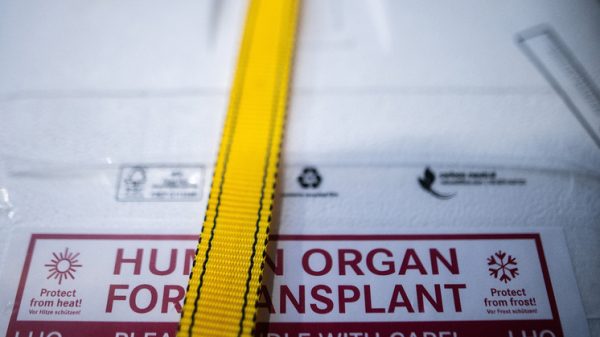 Possible dates Rishi Sunak is considering the possibility of the next general election Photo: STEPHAN RUSSO/REUTERS
Possible dates Rishi Sunak is considering the possibility of the next general election Photo: STEPHAN RUSSO/REUTERS
Rishi Sunak tried to dispel speculation about the timing of the general election , saying his «working assumption» was that the poll would take place in the second half of the year.
The announcement was intended to prevent Labour's planned attempt to designate the Prime Minister to become a «bottler» if he did not appoint early elections in May instead of waiting until the fall.
However, Mr Sunak has not ruled out a May election and Sir Keir Starmer's party is preparing for the possibility of an early election to ensure it does not make a mistake if the Prime Minister gambles on visiting the country in the spring.< /p>
Three to go likely scenarios: early elections in late spring or early summer, autumn elections or a poll at the last possible moment, in January 2025.
Here, the Telegraph explores each of these possibilities, as well as the process that will follow Mr Sunak's decision to call an election.
When is the next general election expected? George Osborne, the former chancellor, said on his Political Currency podcast that Number 10 had chosen November 14 as the likely date for the poll. Such a date would be dictated by «logic».
An early election, according to Mr Osborne, is «no start», given the fact that the Conservatives are about 20 points behind in the polls, which would mean a staggering victory of the Labor Party.
The Prime Minister explicitly stated that until the elections «in the second half of this year» he will continue to «manage the economy well and reduce taxes for the people.»
The 2p National Insurance cut announced last year came into effect on January 6 and Mr Sunak has said he will cut taxes further in the run-up to the election — with income tax cuts likely to be included in the plan . upcoming March budget. Conservative strategists say the autumn election will give voters time to see the benefits of the cuts.
The November election could allow Mr Sunak to use the Conservatives' annual conference in late September to rally his troops ahead of the national campaign. Mr Osborne also suggested it would give the party time to «prepare an autumn statement, such as a mini-budget, either before or immediately after.»
Mr Sunak could also decide to call for an autumn statement, such as a mini-budget. elections once the House of Commons returns from the summer recess in September, leading to voters going to the ballot box next month. In this scenario, party conferences would be cancelled.
Can we hold elections in the spring of 2024?
The Conservatives' possible bet on the fall elections is partly based on the assumption that during this time they will be able to significantly improve their position in the polls. But not everyone in the party is convinced that they can.
Mr Sunak's advisers are concerned that in the polls they appear to have received little benefit from the major policies that have been designed to help turn around their fortunes, such as cuts to national insurance and what Number 10 has called (and it's not unfair) the biggest one-time suppression. legal migration was announced in December.
James Frain, founding partner of research agency Public First, said: “A few months ago the public simply collectively tuned out the Tories like an annoying radio show. Most voters simply don't care about them anymore. It's the same old politicians talking about the same old problems. It's hard to see how the party can ever succeed, whether they call an election or not.»
If Mr Sunak continues to find that major policy announcements do not improve his standing in the polls, he may simply decide to give up waiting until the autumn and take his chances in the spring elections. Key factors for the Prime Minister will include whether economic indicators such as inflation continue to improve, and if polls and focus group research suggest voters perceive a positive effect from the National Insurance cuts and whether the Conservatives are given credit for the move . .
Any success in launching deportation flights from Rwanda will also strengthen the case for traveling to the country in the spring, as will any sign that the NHS elective waiting list is finally starting to dwindle.
Spring elections likely , will take place May 2 and coincide with this year's council and mayoral elections. The Institute for Government said the timing would avoid the risk that «a heavy defeat in local elections could increase pressure on the prime minister — including within his party — and make it difficult to regain momentum ahead of elections, which by then are less than a year away.» .
Such a move would likely significantly increase turnout in council and mayoral elections, raising concerns among some Conservative mayors who fear it could result in their opponents receiving more support than would otherwise be the case.
What is the last date Rishi Sunak can set for a general election?
Under the Dissolution and Reconvening of Parliament Act 2022, Parliament will be automatically dissolved on December 17, 2024 — five years after the 2019 elections — unless a vote is called by then. The last possible election date will be 25 business days later, January 28, 2025. However, by tradition, polls are usually conducted on Thursday, meaning January 23, 2025 is the latest likely date.
An election in January 2025 will give the Conservatives as much time as possible to deliver on their promises, including cutting NHS waiting lists, cutting the debt and ending small ships crossing the English Channel. The Institute for Fiscal Studies has previously said it expects waiting lists to start falling only from mid-2024.
Given recent polling and Mr Frayne's characterization of voters' views of the Conservatives, this approach may be based on an unrealistic level. optimism.
The January election also sees potential MPs campaigning for Christmas — an unattractive prospect for all the major parties and probably the public too.
What is a general election called?
In accordance with Article 2 of the Law on the Dissolution and Convocation of Parliament, Parliament is dissolved by the King using the prerogative. Traditionally, the prime minister travels to Buckingham Palace to demand the dissolution of Parliament and then returns to Downing Street to announce the upcoming election.
When will the voting take place?
Parliament will be dissolved a few days after the election is announced, and voting day will take place 25 working days after that. The civil service will then enter «purdah» — the period between the announcement of elections and polling day, which involves strict restrictions on the work of officials to ensure Whitehall resources are not used to benefit any party.
When should I register to vote?
The deadline to register to vote is usually midnight at the end of the 12th business day before Election Day.






















































Свежие комментарии